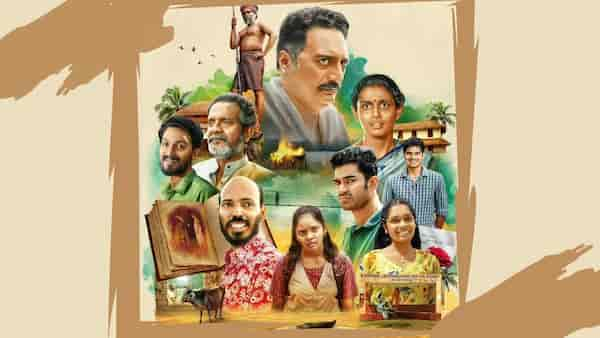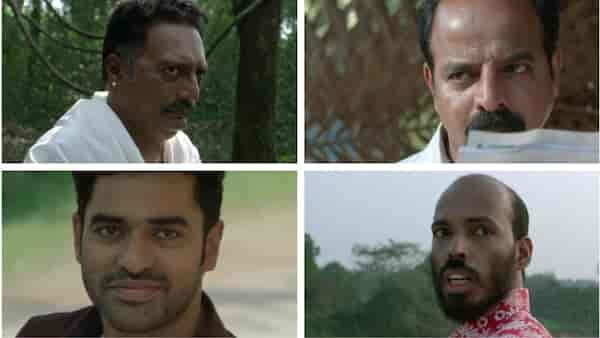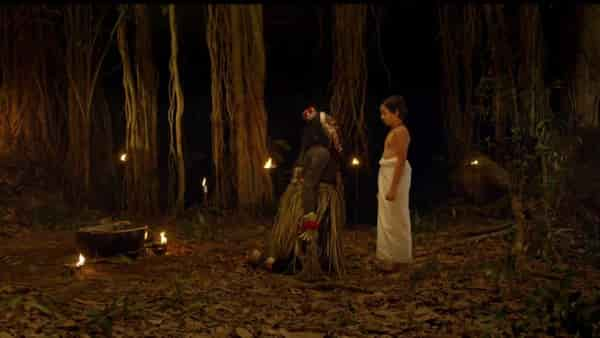Ekam: A Triumph Of Short Literature On Film
Sumanth Bhat and Sandeep PS's latest Kannada web series Ekam might not be richly produced or formally inventive, but the stories are original, canonical and straight out of literature.

Last Updated: 07.03 PM, Jul 13, 2024
EKAM: ONE AND THE MULTITUDE is the new Kannada web series that’s now available on its own platform—one created for the show at ekamtheseries.com. Sumanth Bhat and Sandeep PS are the creators, it is produced by Journeyman Films and presented by Rakshit Shetty’s Paramvah Studios. You may not have heard those words in that order often— “Kannada web series”. The big streaming platforms are not yet into long-form storytelling or even anthologies in Kannada and Malayalam. The Tamil and Telugu web series ecosystem is also at its nascent stage. The creators of Ekam are on record about how no OTT platform showed interest in the anthology series because of its language. So here we are, with this series of short films released independently by the creators as the last and only resort.
Ekam is yet another anthology, but it is vastly different from those that the OTT giants dumped on us as part of several attempts to test the waters of the streaming space with popular filmmakers, writers and actors. Except for maybe Modern Love Chennai, none of them is memorable or exudes enough effort to warrant a revisit. There was no coherent vision or introspective quality to any of those stories. Ekam, on the other hand, flows like properly imagined short films, narrativised from classical short story tradition. There is more writing triumph here than at a filmmaking level, but the output is richer for it. These stories have a central philosophy that guides them; they are complex and, at times, even abstract; they are thematic and dance around their high notions with elegance, maturity and simplicity. There are seven stories with one-word English titles—Flight, Void, Masquerade, Delusion, Legacy, Tradition and Identity. Bhat writes and directs Void, Masquerade, Delusion and Legacy. Flight by Sankar Gangadharan and Vivek Vinod (written by Bhat and Gangadharan) while Sanal Aman and Swaroop Elamon (written by Bhat and Elamon) direct Tradition and Identity.

A prologue sets things in motion, a grand narrator—the 'sutradhar'—presenting that this world contains multitudes and so do individuals. It reminds one of something like Mahabharata on television where the phenomenon of time itself is the storyteller. Each short begins with a tiny animated sequence delineating a grand thought bubble of the story. Thought bubbles also populate Flight, a light romantic comedy which highlights, for a change from our usual mainstream stock, female desire. The woman, Pallavi Kodagu as Manjula develops a crush on the new young man in town, Shine Shetty’s Thomas. Sparks fly and gradually words in the form of letters, Bhat designs the surroundings with the behaviour of the locals. It is an innocuous short that works more for its casual but surprising denouement. This is where the setting of these stories comes into the limelight, colouring our understanding of the gravity of these events. Class and caste intersect in some of these stories or there are characters in flux, moving from one space to another or from one time to another. Void again has a caste and class angle to it, a weary old-school hunter in Basuma Kodagu’s Guruva who is suddenly handed tools above his pay and class grade. His son Aithu is more assertive and is looking to take advantage of class mobility, but Guruva is stuck in time. Masquerade stars Raj B Shetty as Dhanaraja with wealth only in name. This is a dark comedy: a personally and financially struggling Dhanaraja is put to the test by everyone from the people around him — friends, family and even his daughter who lives with her mother, while Dhanaraja lives with his. A cool shot in a hotel has a trumpet lying ignored on a table while we see Dhanaraja framed in light as he is duped into darkness. He is often framed within frames throughout this short, caught in a web of his own failings, as Bhat plays with the aspect ratio.
Delusion is one of the more interesting films in Ekam, the narrative here is almost Hitchcockian. A young schoolgirl, Khushi (Arunima Minj), thinks she’s discovered a secret about her birth but can't confront her parents about it. Bhat plays with a potpourri of religion, myth, science and belief systems in Delusion, the idea of truth itself becomes questionable. Anthropomorphism animates a haunting dream and Khushi is shot at a crossroads in the middle of a bridge in the rain. There is one more shot of Khushi’s mother framed behind the window grill with the bar on the window masking her mouth. Her mother’s silence only harms Khushi’s mental state. The film builds anxiety and suspense beautifully, playing with close-ups, silence and horror-film aesthetics. Legacy with Manasi Sudhir and Suhan Shetty is another potent short film from Bhat, brimming with meaning — and dread. It talks about how power structures can be ingrained and inherited, or even borrowed due to predilection to old value systems like casteism and feudalism. The ending of Legacy is the most disturbing of all in Ekam. Tradition veers into the realm of the abstract, it puts Shashi (Ujwal UV) in a state of bardo as his family led by his uncle Keshav (Prakash Raj) is on the way to his funeral. The film is ambitious and questions the state of being alive and how the intermediate state will be a curse upon the family, one that would rather have Shashi gone for good for its own peace. It is a situation that can be scraped for comedy but Aman and Elamon treat it with sharp seriousness, a state in which systemic forces blind logic. In Identity—a Malayalam short film that is the weakest of the lot—an old writer’s past manifests as a full-scale human in the present day. This manifestation threatens his very existence and his past, uncovering long-forgotten deep ridges in his heart. It is a storyteller’s nightmare, one where the creator is affected by his own tool, the roads he follows to imagine his story lead him to an existential crisis.

The season of Ekam is titled 'Karavali', after the coastal stretch of Karnataka encompassing places like Udupi, Honnavar, Hebri, Mangalore, Puttur and more. The short films are all set around these parts; the monsoon or the water illustrating the visuals in almost all the stories. They are all mofussil, they happen in the interiors, in villages and towns where life might be quiet but busy and eventful even if there is no evidence on the outside. Places where modernity exists but mobility, change and development are stifled. The stories are human and of human spirit and limitations. They question existence and identity, every character trying to figure out what makes them, them. They are reminiscent of Balu Mahendra’s Kadhai Neram, the Tamil television series the great director helmed for a short period. Ekam reflects a similar sensibility, something removed from the mainstream. It is no surprise that these films didn’t find a home on any platform for no network today wants original, experimental work that is more at home in the arthouse space. Ekam might not be richly produced or formally inventive but the stories here are original, canonical and straight out of literature. And it is great to see the qualities of literature subsumed in film.

 Premium
Premium